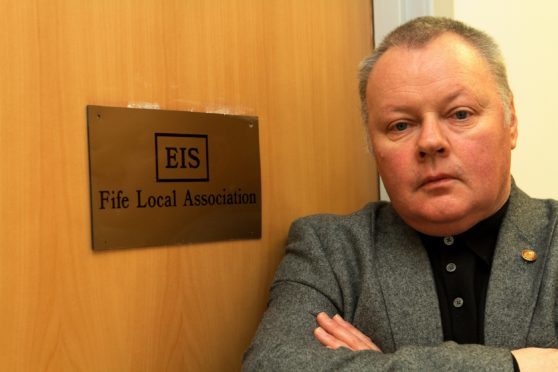A teaching union has fired a warning shot over the prospect of huge budget cuts to Fife secondary schools.
David Farmer, publicity officer for the EIS said there were “very real concerns” about secondary schooling if the proposals went ahead in their current form.
And he raised the prospect of members rebelling against the move, warning: “Let us not forget that in another Scottish local authority EIS members successfully overturned a very similar, unacceptable cut by taking industrial action.”
He was referring to strike action in West Dunbartonshire.
Cuts could see around 20 promoted posts scrapped this year, with the same again the following year.
Mr Farmer said the proposal would increase the workload of every teacher in every Fife secondary school without any extra payment.
He said it threatened the viability and integrity of many subjects, reducing young people’s choices.
And he warned it would make behaviour management issues “already at near crisis point” in some schools, even worse.
He said: “For those young teachers who have survived the workload, the behaviour issues, the stress and the morale sapping issue of teachers’ pay the proposal will inevitably restrict severely their opportunities for any hope of promotion or development.”
Fife Council’s head of service Shelagh McLean said council bosses would listen to all concerns.
“We are currently in the middle of a consultation process and all of the concerns raised here, along with all the other representations both at a school and Fife level, will be discussed, considered and responded to appropriately,” she said.
“It is critical to understand that some schools are getting an increase in funds because we are redistributing our staffing budget to create a fairer, clearer and more equitable formula, where resources are allocated based on the most up to date school roll data.
“The anxieties raised by the EIS around roles and structures will form part of the discussions we are having with the trade unions, staff and individual teachers.
“Where there is a proposed change to any specific remit there is a process, agreed with the trade unions, for matching individual teachers to posts and any increase in responsibility is likely to lead to a job-sizing review and the relevant reassessment of the salary.”










